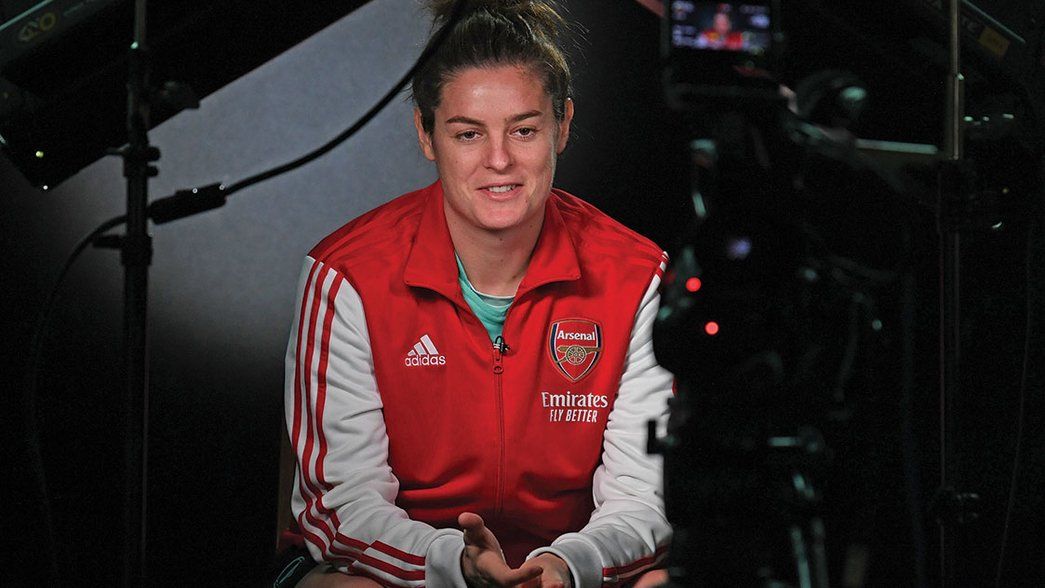A star central defender – and occasional striker – for Arsenal Women and Scotland for many years, Jen Beattie always has one eye on the next match. But with her other eye, she’s also considering how her and her sport’s actions affect the environment.
In a forthcoming interview with Sky, she spoke at length about sustainability, starting with how she had changed her diet.
“The biggest change I’ve made is going plant based a few years ago,” says Jen, who has played 131 times for the Gunners. “You can change your carbon footprint by up to 70 per cent. I made the change initially for performance reasons, but the environmental impact made the decision a no-brainer.
“Like I said, initially performance was the key driver. As footballers we are always looking for a one per cent improvement. It took me a few months to be 100 per cent plant-based but I felt the effects pretty quickly. I felt better quickly too and it was enjoyable really to stick to. I felt like I had more energy, I recovered quicker. My diet is more nutrient dense. People think of things you can’t have, but it was much more nutrient dense and in terms of energy and recovery, the differences were like night and day.”
Changing her diet so fundamentally didn’t go unnoticed by her team-mates.
“When I went vegan, my team-mates were inquisitive,” says Jen. “I was at Man City at the time and they were interested but great with it. Attitudes towards a vegan diet have changed.
“When you see animal cruelty, the images are horrific to watch. Following a vegan diet you don’t add to that cruelty and it makes you feel a bit better, but it’s still horrible to know it is happening and it is a huge part of eating meat and fish in your diet and it is incredibly sad.”
Shifting to a plant-based lifestyle also has implications away from mealtime too, as Jen explains: “Being vegan opened my eyes to being more sustainable,” says the 30-year-old, who has played a remarkable 139 times for Scotland. “As footballers the amount of apparel we wear and the new kit every year was thought-provoking, so I asked how could I be more sustainable and avoid fast fashion? I did research into brands who were doing things better and using recycled materials.
“The carbon footprint of the new clothes bought in UK per month is greater than flying a plane around the world 900 times. It is insane,” says Jen. “We live in a world where we want new things all the time. I understand that’s how society works, but that society isn’t helping any of us. We need to stop worrying about buying new things and actually have a wardrobe that is more sustainable. I hope this mindset can change, but at the minute we live in a world where social media is a huge driver to constantly having new things, so as long as social media keeps driving that it is hard to change.
“We need to take more responsibility for our actions and thoughts and not be driven by that,” she adds. “I think all clothing should be from recycled materials. I don’t understand this new, new, new thing that we are all obsessed with. If there is a way to make things from recycled materials, then that is what we should be doing.
“Sports brands have a huge responsibility as soon as they come out and say they are creating their products via different avenues, it gives more value to consumers buying the product. Knowing that it is made in a more sustainable way, it gives them confidence wearing it and makes them feel they are doing their bit as well.”
In the wide-ranging interview on the environment, Jen also speaks about noticing a shift in playing conditions due to climate change and how difficult it can be for footballers to speak out. Look out for the documentary on Sky.
Copyright 2024 The Arsenal Football Club Limited. Permission to use quotations from this article is granted subject to appropriate credit being given to www.arsenal.com as the source.










